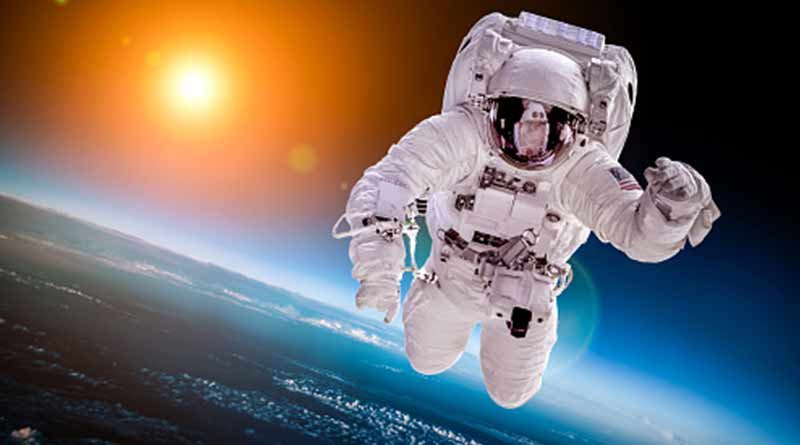At least once in our life every one of us has looked up towards the infinite sky and wondered what mysteries it has kept from us. What secrets are hidden in this vast universe which is beyond our reach? Many interesting questions arise from our curiosity which might hold the answer for endless opportunities. Are we alone in this universe? Are there more like us somewhere in the space or someone different from us? Is there life possible on some planet other than earth? What are the secrets of the moon? Are the legends about aliens true? Well if you think like that and want to solve the endless mysteries of this universe then being an Astronaut is the right career option for you.
Now it is one of the rarest but one of the most interesting career options one can opt for. In this article, we will talk about the path to be an astronaut. Whenever we talk about the word astronaut, the first thing that comes to our mind is NASA. The word alone is enough to give us goosebumps as it is the foremost space organization in the world. Every aspiring scientist has a dream to work with NASA and it is the perfect place for an aspiring astronaut. In this article, we will talk about the path to be an astronaut.
What is an astronaut?
The term “astronaut” is derived from the Greek words ástron which means star and nature means sailor. It refers to everyone whom NASA has launched as crew members aboard NASA spacecraft bound for orbit and beyond. An astronaut or cosmonaut is a person who is trained by a human spaceflight program to pilot, command, or serve as a crew member of a spacecraft. In simple words, an astronaut is a person who travels into space for exploration work. An astronaut often travels to space for research work or to repair satellites in space.
What do astronauts do?
Any spacecraft which is launched is supported by a crew that consists of astronauts who perform specific duties. Let us take a look at them.
Commander and Pilot Astronaut Duties:
A pilot astronaut performs the duty of commander and pilot of the Space Shuttle and International Space Station. During a mission, the onboard responsibility of the vehicle, crew, mission success, and safety of flight rests on the shoulders of the commander. The pilot works as an assistant to the commander. He helps him in operating the vehicle. The pilot also assists the commander to deploy and retrieve the satellites utilizing the remote manipulator system and in other payload operations.
Mission Specialists:
A mission specialist is responsible for the coordination of operations in crew activity planning, systems, consumables usage, and experiment/payload operations. A mission specialist is specifically trained in the details of the onboard systems, mission requirements/ objectives, as well as the operational characteristics, and supporting equipment/systems for each of the experiments which are conducted on their assigned missions. They also perform extravehicular activities (EVAs), operate the remote manipulator system, and spacewalks, and are responsible for payloads and specific experiment operations.
Mission Specialist Astronaut Duties:
Their duty is to coordinate Shuttle operations in the areas of consumables usage, crew activity planning, and experiment and payload operations. They have a detailed knowledge of Shuttle systems, operational characteristics, mission objectives, requirements, and supporting systems and equipment for each payload element on their assigned missions. They also perform extravehicular activities, payload handling using the remote manipulator system, and assist or perform specific experiment operations.
Payload Specialists:
They are people other than NASA astronauts who perform specialized onboard duties. They also include foreign nationals. They are added to the shuttle crew if there is a mission that requires more than the minimum crew size of five members. First priority for additional crew members is given to qualified NASA mission specialists. NASA, the foreign sponsor, or the designated payload sponsor nominates the person required as a payload specialist. When the mission is NASA’s own then the appropriate Investigator Working Group (IWG) recommends the persons for the job.
Basic requirements to be an astronaut (NASA)
Astronaut Pilot:
1. A candidate must have a Bachelor’s degree from an accredited institution in the science stream whether it is engineering, biological science, physical science, or mathematics. You will see that all the astronauts have a much higher education than the minimum requirement. The quality of academic preparation is important.
2. You must have at least 1,000 hours of pilot-in-command time in jet aircraft. Flight test experience is highly desirable.
3. The candidate must pass a NASA space physical which is similar to a military or civilian flight physical and includes the following specific standards:
- Blood pressure: 140/90 measured in a sitting position.
- Distant visual acuity: 20/100 or better uncorrected, correctable to 20/20 for each eye.
- Height between 62 and 75 inches.
Mission Specialist Astronaut Duties:
1. Their educational requirement is the same as that of astronaut pilots. However, in addition to the degree, they must have at least three years of related, progressively responsible, professional experience. An advanced degree is beneficial and may be substituted for part or all of the experience requirement (master’s degree = 1 year of experience, doctoral degree = 3 years of experience).
2. Ability to pass a NASA space physical, which is similar to a military or civilian flight physical and includes the following specific standards:
- Blood pressure: 140/90 measured in a sitting position.
- Distance visual acuity: 20/200 or better uncorrected, correctable to 20/20, each eye.
3. Height between 58.5 and 76 inches.
Physical condition:
- The candidate must be free from any disease.
- The candidate must have a normal range of motion and functionality in all joints.
- The candidate must be free from any dependency on drugs, alcohol, or tobacco.
- The candidate must be free from any psychiatric disorders.
- The candidate must have visual acuity in both eyes of 100% (20/20) either uncorrected or corrected with lenses or contact lenses.
- The applicant must demonstrate cognitive, mental, and personality capabilities to enable him/her to work efficiently in an intellectually and socially highly demanding environment.
NOTE- In order to apply for NASA one must be a citizen of the USA
QUALIFICATION EXAM
Once a candidate has completed their graduation or a higher education he/she can appear for the exam held by NASA for the recruitment of astronauts and scientists.
In India, one can also apply for ISRO (Indian Space Research Organization).In order to join the ISRO, the candidates must clear the Joint Entrance Exam set by the IITs.
ELIGIBILITY FOR ISRO
Who is eligible to apply?
Citizenship: The candidates who are joining the ISRO must be Indian citizens
Age limit: A candidate must be at least 21 years at the time of joining. The age limit is relaxable for candidates who belong to the SC/ST category
Qualification: candidates should have at least a Bachelor’s degree from a recognized board or university.
EDUCATION
If you want to be an astronaut then you need to take the science stream right from your school. It is the basic requirement of being an astronaut. You should choose PCM (Physics Chemistry Maths) and need to be excellent in these subjects as this field is very demanding and complex.
Once you are done with school then you need to be at least a graduate in order to be eligible to be an astronaut. The most important thing is that you stop just after graduation. Go for post-graduation and doctorate. The higher your education will be the better it will be for you.
- Ph.D. (Astrophysics).
- Ph.D. (Geophysics).
- Ph.D. (Metaphysics).
You can opt for any of these degrees. Remember that masters and doctorates are specialisations in your stream.




